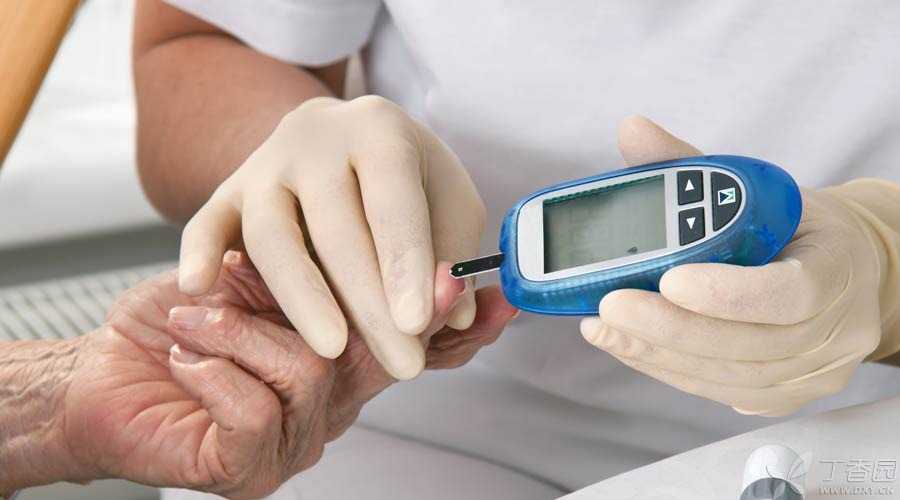
If I have diabetes, will I be fine if I eat less sugar?
It is said that diabetes can lead to invisible eyes and diabetic feet. I don’t have any of these, does it matter?
In fact, for diabetics, they should pay more attention to their hearts and brains.
Some studies have shown that the risk of death from heart disease or stroke in patients with type 2 diabetes is 2-4 times higher than that in people without diabetes.
In addition, many diabetics are accompanied by blood lipid, blood pressure rise, overweight or obesity and other problems. Therefore, in the treatment, should be treated equally.
How can diabetics stay away from heart disease and stroke as much as possible? Come and study quickly!
Step 1 Control Blood Glucose
It is necessary to ensure that the blood sugar is maintained at a safe level. The glycosylated hemoglobin detection can determine the sugar [bound] to red blood cells in the blood, thus judging the blood sugar level in the past three months. The glycosylated hemoglobin should be detected at least twice a year (target value: less than 7%).
In order to better monitor the daily blood sugar changes, especially the influence of food, a rapid blood sugar meter can be used to prick the tip of the finger for blood sugar monitoring.
Blood glucose should be maintained at 3.9 ~ 7.2 mmol/L before meal and ≤ 10 mmol/L 1 ~ 2 hours after meal.
(How dangerous is it that blood sugar is not well controlled? Click on the link to control the top 10 risks of poor blood sugar control)
Step 2: Exercise appropriately
Exercise for at least 30 minutes a day. It can be completed at one time or scattered after three meals. When driving, you can choose to stop at the end of the parking lot and then walk more.
How should diabetics exercise? Click on the link to exercise diabetes has many benefits. How should we exercise? )
Step 3: Eat Healthy
Eat more whole wheat bread, oatmeal, fruits and vegetables, stay away from foods high in saturated fatty acids and cholesterol, and try to avoid foods high in trans fatty acids, such as creamer, cakes, instant coffee, biscuits, French fries, ice cream, etc. (Excessive intake of trans fatty acids increases the risk of cardiovascular diseases.)
How do diabetics eat? Click on the link to talk about diabetes diet)
Step 4 Monitor blood pressure
Regularly monitor blood pressure. Most diabetic patients should control their blood pressure below 130/80 mmHg. (If they are over 60 years old or have other chronic diseases such as kidney diseases, doctors should formulate blood pressure control standards according to the actual situation.)
How terrible can blood pressure be if it is not well controlled? Click on the link hypertension control is not good, may be blind, can’t see)

Step 5: Weight Control
Overweight or obese diabetics can consult a regular nutritionist to lose weight safely. Strictly plan each meal to maintain normal blood sugar level while ensuring daily nutrition intake.
What should obese diabetics do? Click on the link Obesity is a disease and must be treated)
STEP 6 It’s time to quit smoking
If you smoke, quit! If you fail, don’t be discouraged or think you just can’t do it. There are many ways to quit smoking, but what is certain is that most people successfully get rid of this bad habit by trying hard and repeatedly.
It is too difficult to quit smoking? Click on the link to give up smoking advice-for the most difficult first few days)
7. Monitor blood lipid
Blood lipid levels are tested at least once a year.
- LDL (low density lipoprotein, or [bad cholesterol]): should be less than 3.37 mmol/L (130 mg/dl); HDL (high density lipoprotein, or [good cholesterol]): 0.9 mmol/L (35 mg/dl) in men and 1.0 mmol/L (39 mg/dl) in women; Triglyceride: should be less than 1.7 mmol/L (150 mg/dl).
How important is reducing blood lipid? How important is it for people with coronary heart disease to click on the link to reduce blood lipid? )
8. About Aspirin
Taking low doses of aspirin daily can reduce the risk of heart disease and stroke. However, not every patient is suitable for taking it. Please consult your doctor for details.
How do I take aspirin? Click on the link aspirin, don’t eat it if it’s okay)
Responsible Editor: Huang Lijia
Clove Garden is exclusively authorized and cannot be reproduced without permission.
